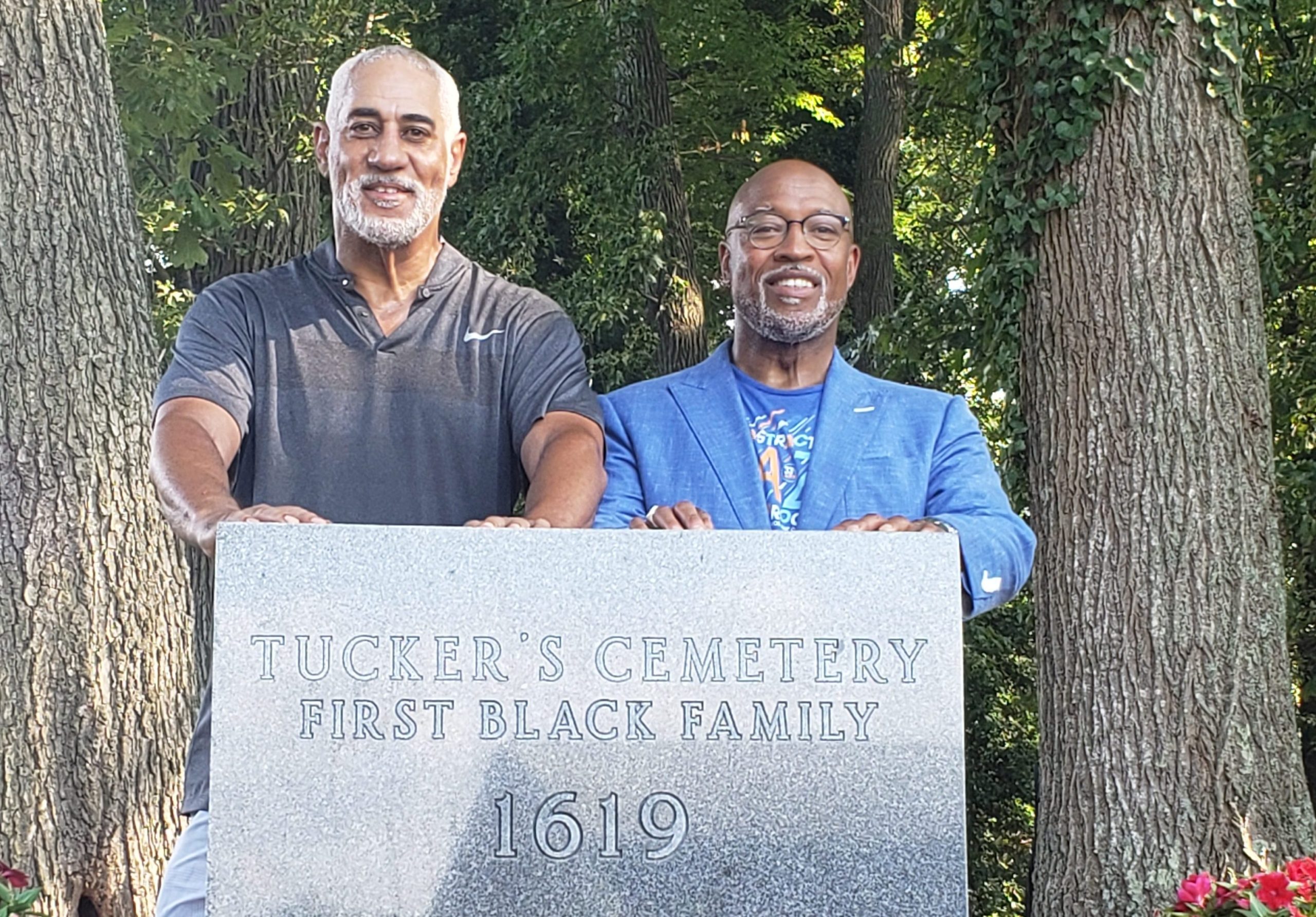
1619-2019: Acknowledging the Complete American History Narrative
As the City of Hampton and the Fort Monroe Authority prepare to host a weekend of activities commemorating the 400th anniversary of the first arrival of Africans in Virginia, VICPP Health Equity Manager Dora Muhammad sat down for an interview to explore this weekend’s significance with a member of the Hampton VA Commemorative Commission, Dr. Cassandra Newby-Alexander, Norfolk State University’s Dean of College of Liberal Arts, Professor of History and Director of the Joseph Jenkins Roberts Center for African Diaspora Studies.
Why is it significant to officially commemorate the 400th anniversary of the first arrival of Africans in Virginia?
Since 1619, America has had a conflicted relationship with the idea of its self-governing system that had as one of its issues, democracy and the existence of legalized system of bondage for groups of people based on their association with the continent of Africa. America is still grappling with those issues today. You cannot begin to address any ills in society unless you first examine its origin. By examining the time period that began in 1619, America can look at its true origin.
What does the year 1619 benchmark for Black history, American history, African Diaspora history?
The trans-Atlantic slave trade began almost a century before, so Africans have been in the Americas for 500 years. In 1619, the Virginia Company of London allowed for the colony to create a self-governing body. This was a key indicator of the confidence that the colony would survive. Yet, the legislative body that was created a month before the first forced arrival of Africans in Virginia would be the same body that would begin systematically taking away rights from those individuals and a racialized system emerged within the first 20 years after 1619.
Speak to this sentiment—Why can’t Black folks just let slavery go? It’s the past. Slavery ended. What’s this thing about racial justice? There’s no need for it.
They don’t know the history of America and our legal system. Legal scholars now refer to “muscle memory” of how Africans were regarded by law when looking at decisions the courts are making today. The 1640 ruling in the John Punch case is clear evidence. [In deciding the fate of three runaway servants—a Scotsman, a Dutchman and an African—the court only sentenced John Punch to life in slavery, the first African to be placed in bondage by law in Virginia.] In 1669, Virginia passed a law that allowed for the “casual killing” of enslaved people by their owner so their killings were not looked at as murder of another human being but killing an animal. A 1672 statute gave impunity to any white person to kill Africans if they were resisting arrest. We see the same practices today. Pick up any textbook from K-12, you will not see these narratives but rather stories that erase the presence of a people. We have not come to grips with who we are as a nation. History is not supposed to make you feel good about yourself and justify your position. It is supposed to record what happened.
The broader celebration of 1619 in Virginia is under the umbrella of the American Evolution. Where do Black folks stand within this evolution of the American identity in 2019?
The idea of Black Americans being American is still evolving. While you still have a percentage of people who still believe that Black people need to go back where they come from, ignoring the fact that only the native peoples can tell anyone to go to back to where they came from. Racism is about a system; it is not about individual prejudices. Those can be erased over time. But a system is what we are dealing with today. We see clear evidence that African Americans are not treated the same as White Americans before the law—we see it in rulings, pre-trial, grand jury and sentencing. In school, they are suspended from school at a much higher rate than any other children. That muscle memory of racialism is still a part of our system. That’s what many activists and historians today are trying to get our nation to acknowledge. The current racialized system was created in 400 years. You have to put as much energy dismantling it as was put into constructing it. We have not collectively even acknowledged it.
What is one of the most cardinal pieces of missing or hidden history in this country that people need to understand?
We had and continue to have a racialized system that does not acknowledge the humanity of people of African descent in the same way it does the white population. And that humanity includes contributions, activities as well as the impact that actions taken by others have had on the Black community. And because of that, our understanding of who we are is skewed and incomplete. By not acknowledging this history, you are creating a fantasy and perpetuating a lie about the past. People make up stuff and ignore realities to the detriment of others. So, many people voice their opinion based on a lie. Black history focuses on African Americans to tell a more detailed story that should be a part of our American history narrative. Without knowing this, you don’t know America.
You will be a panelist during Friday’s discussion, “1619-2019: 400 Years of Perseverance.” Talk about the meaning of perseverance to the Black community.
Despite the racialized system, you still have African Americans moving forward. You still have achievement. You do not see a static environment.
What has been distinct about the role of the city of Hampton to Black people and the history of Virginia?
I hope more people will see Hampton as a major site for remembrance, acknowledgement and truth-telling instead of a backwater area. It was the place where Black agency resulted in a contraband generation of escaped Blacks who demanded the idea of freedom that helped change the face of the Civil War, the Constitution, and the legal system that allowed for their enslavement. Frank Baker, James Townsend, Shepard Mallory escaped from their owners who were forcing them to build fortifications for the Confederate Army. They came to Fort Monroe and asked the commander for sanctuary. Major Butler saw this as an opportunity to get around Fugitive Slave laws—since they were being used to fight against the Union, they were like contraband and rules of war did not obligate him to return weapons to the enemy. Instead, he authorized the acceptance of all Blacks coming to the fort for sanctuary. A month later, he extended sanctuary to women and children for humanitarian purposes. By that summer, a conscription act and later a contraband act which regularized his actions beyond the Fort Monroe region. These acts would eventually lead to the Emancipation Proclamation and the 13th Amendment.
Hampton, though a small port city, was the place where many Blacks fled to escape slavery up until 1830s trying to get aboard ships. It is also the site of the important Hampton Institute, later named Hampton University, where many Blacks along the East Coast and even West Africans came to be educated and later became entrepreneurs and professionals. It was a place that fueled the energy and efforts of African Americans to not only be free and live free, but to have the means to be free to govern and control their own lives.
Watch our video chat with descendants of William Tucker, the first recorded child born of African ancestry in Virginia.
Take a stroll through Hampton African American heritage sites in our photo essay.
